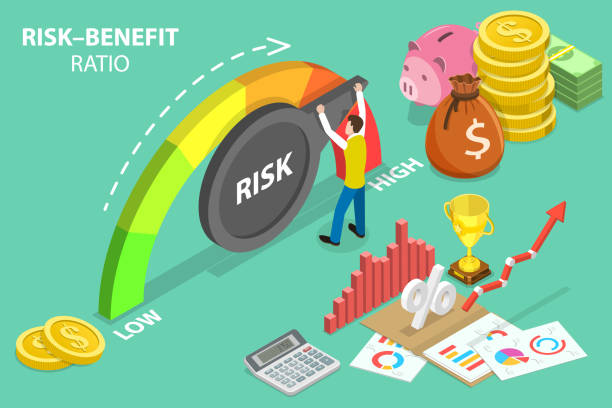Your credit score plays a crucial role in your financial life. Whether you’re applying for a mortgage, trying to secure a car loan, or simply seeking approval for a new credit card, your credit score can make or break your chances. For many people, building or improving their credit score is a significant financial goal. One common strategy to boost your credit score is taking out a loan—specifically, a personal loan or a credit-builder loan. But is it really worth it? Does using a loan to improve your credit score work, and are there any risks involved?
Let’s break down how this strategy works and whether it’s a smart choice for you.
Understanding Your Credit Score
Before diving into loans, it’s important to have a basic understanding of how your credit score is calculated. The most commonly used credit score model in the U.S. is the FICO score, which ranges from 300 to 850. It takes into account the following factors:
- Payment History (35%): Whether you pay your bills on time.
- Credit Utilization (30%): The amount of credit you’re using compared to your total available credit.
- Length of Credit History (15%): The age of your oldest account and the average age of all your accounts.
- Types of Credit Used (10%): A mix of credit cards, loans, and mortgages.
- New Credit (10%): How many recently opened accounts you have and the number of hard inquiries.
When you use a loan to build your credit score, you’re primarily targeting two factors: payment history and credit mix. Making on-time payments on a loan can improve your payment history, and taking on a loan could diversify the types of credit you have, which could positively impact your score.
How a Loan Can Improve Your Credit Score
If you have a thin credit file or your score is lower than you’d like, taking out a loan can help improve your credit standing in several ways:
- Building a Positive Payment History
The most straightforward way a loan can boost your credit score is by establishing a history of on-time payments. Each time you make a payment on a loan, it’s reported to the credit bureaus, which adds to your payment history. As long as you continue making consistent, on-time payments, you can significantly improve your score. - Diversifying Your Credit Mix
Credit scoring models take into account the types of credit you use. Having a mix of credit types (credit cards, mortgages, auto loans, personal loans, etc.) can be beneficial. If you only have credit cards, adding an installment loan (like a personal loan) can increase the variety of credit you manage, which may help boost your score. - Reducing Credit Utilization
If you’re using a large portion of your available credit on credit cards, taking out a small personal loan to pay down some of that debt can improve your credit utilization rate. Since credit utilization accounts for 30% of your FICO score, reducing this ratio can help increase your score over time.
Types of Loans for Building Credit
When it comes to using a loan to improve your credit score, there are a few different types of loans to consider:
- Personal Loans
Personal loans are unsecured loans that you can use for nearly anything, from consolidating debt to making a large purchase. If you use a personal loan wisely and make regular, on-time payments, it can help you build a positive credit history. However, keep in mind that taking out a personal loan also adds to your debt load, so make sure you can comfortably manage the payments. - Credit-Builder Loans
These are specifically designed to help people with limited or poor credit histories build their scores. A credit-builder loan works differently from a traditional loan. Instead of receiving the loan amount upfront, the money is placed in a savings account or CD, and you make monthly payments toward the loan. Once the loan term is complete, you receive the funds (minus interest and fees), and your credit score has likely improved due to your consistent payments. - Secured Loans
A secured loan is backed by collateral, such as a car or a savings account. If you default, the lender can seize the collateral to cover the debt. These loans may be easier to qualify for if you have a low credit score, and they can also help build your credit if you make timely payments.
The Risks of Using a Loan to Build Credit
While taking out a loan to improve your credit score can be effective, it’s not without its risks. Here are a few things to keep in mind:
- Adding to Your Debt Load
Taking out a loan means taking on new debt. If you already have significant debt or struggle with managing payments, adding another monthly obligation can put unnecessary stress on your finances. If you fail to make your payments on time, your credit score could actually drop. - Interest Rates and Fees
Loans come with interest rates, and if your credit score is low, those rates could be high. On top of that, some loans come with hidden fees, such as origination fees, late payment penalties, and prepayment penalties. These fees can quickly add up, making the loan more expensive than you might have initially thought. - Short-Term Fix
A loan may temporarily boost your credit score, but it’s no substitute for long-term good financial habits. A score boost is only beneficial if you continue to manage your credit well—avoiding late payments, keeping credit utilization low, and diversifying your credit mix.
Is It Worth It?
Using a loan to build your credit score can be effective if you follow a responsible strategy. If you can manage the loan without overextending yourself financially, the benefits can outweigh the risks. The key is to make sure that you have the financial discipline to handle the loan responsibly and make all of your payments on time.
If you’re simply looking to improve your credit score for an important financial milestone, such as buying a home or getting a car loan, taking out a loan could help you reach that goal. However, if you’re already carrying high levels of debt or struggle with managing payments, it might be better to explore other methods of improving your score, such as paying down existing debt or disputing errors on your credit report.
In conclusion, using a loan to build your credit score can be worth it if done with careful consideration and planning. But like any financial decision, it’s important to weigh the pros and cons and ensure that you’re in a position to handle the responsibility of another loan before moving forward.

